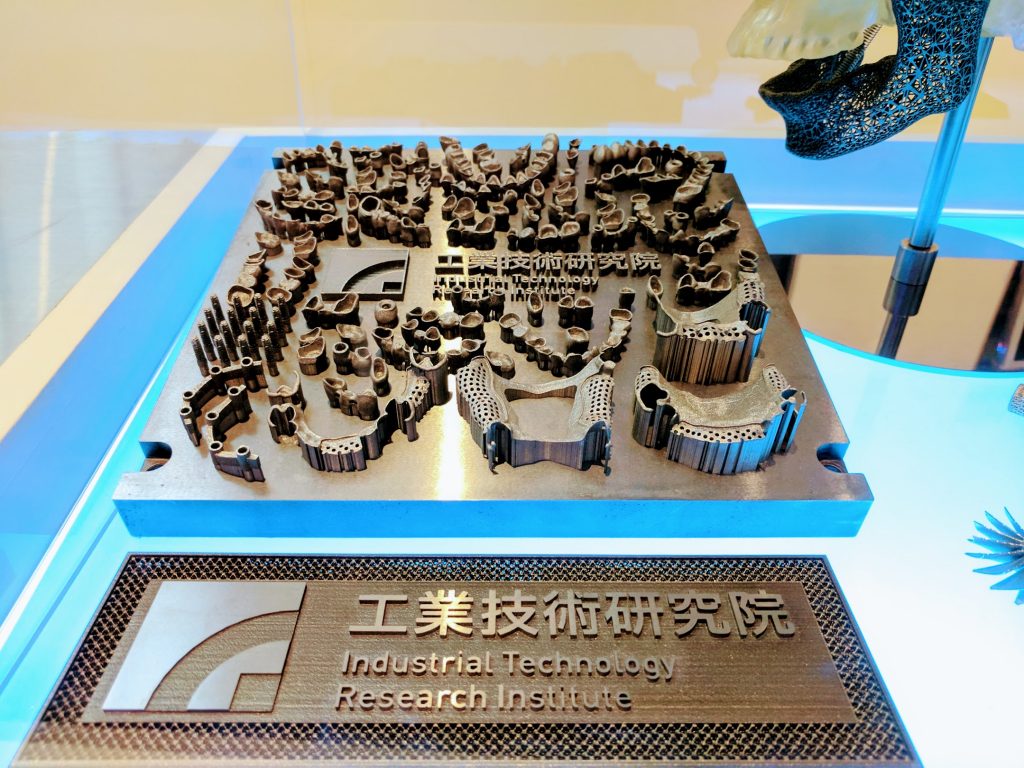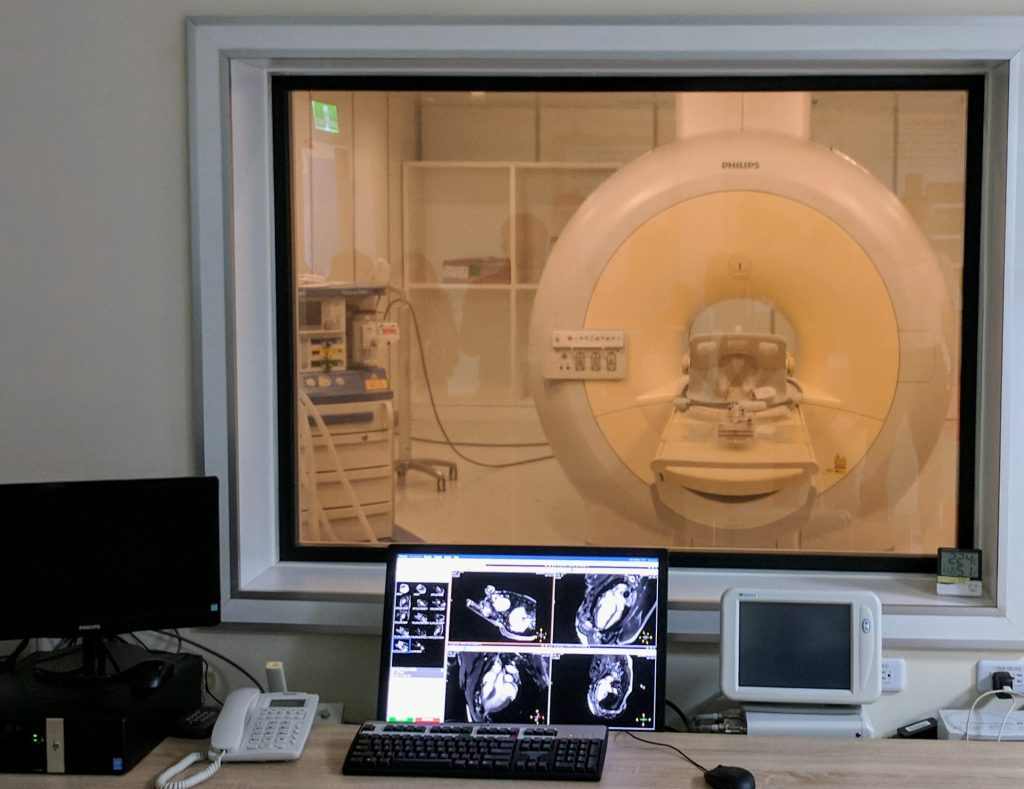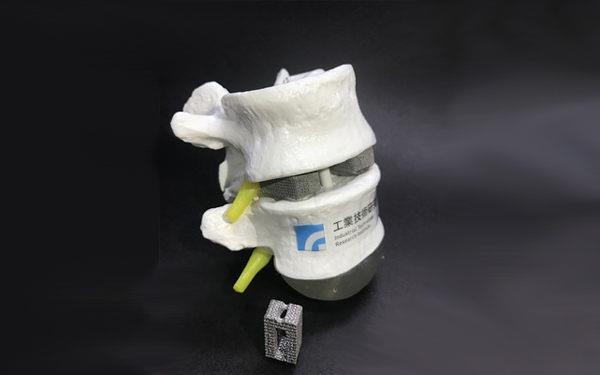One of the most common applications of 3D printing in medicine is to make small implants for joints, like those found in the spine. In recent years the FDA has cleared a number of such devices for sale on the U.S. market, and many companies have introduced the 3D printed medical products across Europe.
The main reasons for uptake of additive manufacturing in implants is that they can be made as a perfect match for a patient’s anatomy. Furthermore, the porosity that is possible with additive techniques encourages in-growth of new cells to expedite recovery and accession in the body.

At Taiwan’s Industrial Technology Research Institute (ITRI) researchers have developed a new kind of orthopedic implant that they believe is ready to reach circulation in 2018. The implants are designed to perfectly match the anatomy of people with Chinese heritage, and are made using a metal additive manufacturing technique.

World leading research
ITRI is a world leading, non-profit R&D institution, that could be considered Taiwan’s equivalent of the Fraunhofer Society or TNO. It was first launched in 1973, and we paid a visit to the institute as part of our 3D printing tour of the nation. Industrial partnerships, including one for large-scale additive with Materialise, ensure that ITRI remains at the cutting edge of industry.

Biomimicry for the bones
As Vice President and general manager of ITRI biomedical technology and equipment research laboratories, Chii-Wann Linn led the recent initiative to bring biomimetic implants to the Chinese market.
So far, Linn’s team has successfully devised a program that can design and 3D print custom implants with a turnaround time of just 12 hours. The streamlined process means that patients and surgeons can make it through procedures at a much faster pace, delivering to an ever-demanding market for the devices.

According to reports from Chinese 3D printing news site 3Dhoo, Linn says the “efficiency will ultimately provide patients with faster and more comfortable” operations.
Example implants have been shown supporting vertebral segments of model spine. Production currently takes place exclusively in Taiwan, and availability in mainland China is expected by the end of 2018.

Don’t miss another medical story – subscribe to the 3D Printing Industry newsletter, follow us on Twitter, and like us on Facebook.
Featured image shows a spine model with ITRI devised 3D printed implants. Photo via ITRI


